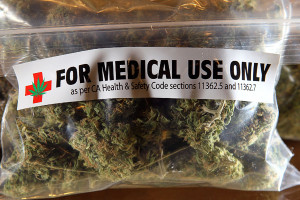 For the last few years Maryland residents have been required to obtain a license to legally purchase a handgun. The handgun qualification license or HQL has been in effect since October of 2013 and requires purchasers to complete safety training and pass a full background check with the state police that includes fingerprinting. Those wishing to purchase rifles and shotguns are not subject to these requirements, and must only fill out a federally issued form and pass an instant background check. If you come with proper identification and pass the ATF’s check you can easily buy a semi-automatic shotgun or rifle in under an hour. But handguns are different, and despite anticipated backlash from the gun lobby the HQL requirement has largely remained out of the news since 2013.
For the last few years Maryland residents have been required to obtain a license to legally purchase a handgun. The handgun qualification license or HQL has been in effect since October of 2013 and requires purchasers to complete safety training and pass a full background check with the state police that includes fingerprinting. Those wishing to purchase rifles and shotguns are not subject to these requirements, and must only fill out a federally issued form and pass an instant background check. If you come with proper identification and pass the ATF’s check you can easily buy a semi-automatic shotgun or rifle in under an hour. But handguns are different, and despite anticipated backlash from the gun lobby the HQL requirement has largely remained out of the news since 2013.
Fast forward 5 years and the HQL law is back in the news after medical marijuana users are discovering they may have given up their right to purchase a handgun simply for registering as patients. In addition to convicted felons and those found guilty of other crimes such as second degree assault, the Maryland public safety code prohibits drug addicts and habitual drunkards from possessing any type of firearm. The language of the statute is key, as Maryland law does not broadly prohibit those who use drugs or drink alcohol from possessing or purchasing guns. Federal law on the other hand has prohibited the sale of guns to users of controlled substances since the Gun Control Act of 1968 and the Brady act of 1993, and it is this decades old legislation that is now the reason more than 20 medical marijuana patients have been denied the right to purchase a handgun. Marijuana is still defined as a controlled substance under federal law, and while the feds have yet to show signs they would enforce these acts as they relate to medical marijuana in Maryland, the state police apparently do not wish to assist citizens in breaking the dated law.
Patients who register with the Maryland Medical Cannabis Commission are protected by federal HIPAA regulations, and their identities cannot be disclosed anyone, especially to law enforcement. But within the last year the state police have added a question in their HQL application that asks the applicant whether they are a registered user of medical marijuana. The police may not have access to the database, but lying on the application is a federal offense that carries up to 10 years in prison, making it unreasonable to risk criminal prosecution simply to purchase a handgun. Therefore by simply asking the question the state police are effectively banning medical marijuana patients from lawfully purchasing a handgun, and are covering their butts from the feds in the process. The questionnaire also adds a layer of protection to state gun dealers, who risk federal prosecution for unlawfully selling handguns in violation of the Brady Act. Violating the act is not a strict liability crime, meaning the shop would have to know or have reason to believe they are selling to a prohibited person. The impression we get from the HQL is that the state is not interested in subjecting its citizens to federal prosecution, but at the same time does not want to be complicit in violating federal law.
The HQL and the requisite questionnaire only apply to the purchase of handguns but the Brady Act seems to apply to all firearms. While the purchase of rifles and shotguns is not tightly regulated by state laws, the ATF Firearms Transaction Record form (required for all gun purchases) still asks whether the purchaser is an unlawful user of controlled substances. In bold type the form reminds the purchaser that marijuana remains illegal under federal law regardless of any state law to the contrary. Again, giving a deceptive answer on this from could subject one to criminal liability. There is of course a gray area because being a registered medical marijuana patient is not necessarily proof of marijuana use. But if it gets to the point where you have to make that argument then you’re already in more trouble than buying a gun is worth. The Blog will monitor changes to state and federal cannabis law, and will post a follow up article as the law continues to evolve.
If you have additional questions about any of these issues feel free to contact criminal defense lawyer Benjamin Herbst anytime at 410-207-2598. Benjamin specializes in firearm and controlled substance cases, and offers free consultations and flexible payment plans for representation.
Resources
Guns and Medical Marijuana: An Illegal Mix, According to Feds, foxbaltimore.com.
 Criminal Defense Lawyer Blog
Criminal Defense Lawyer Blog

